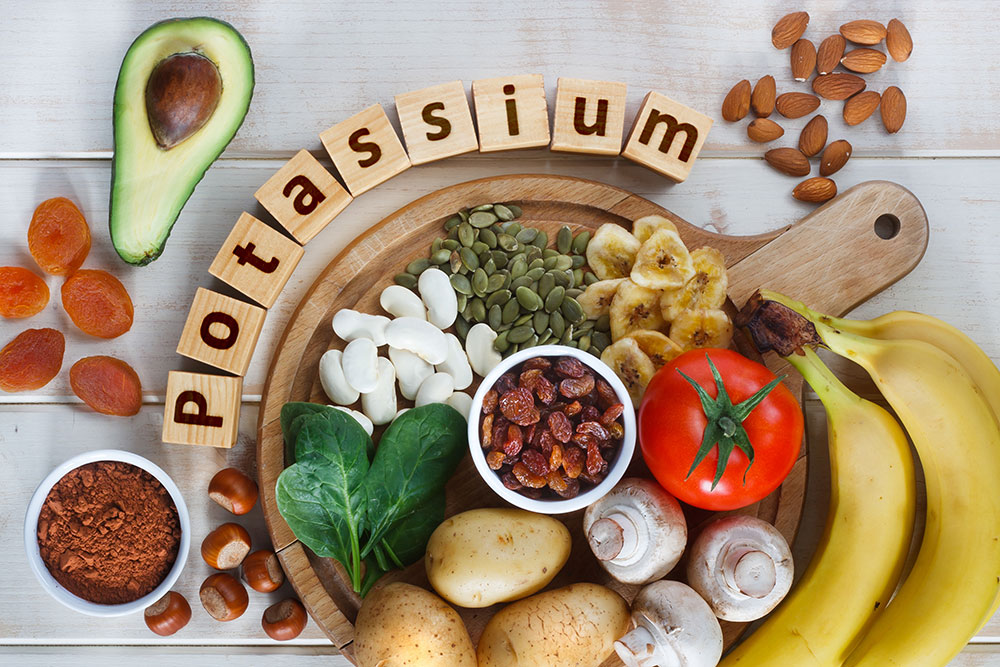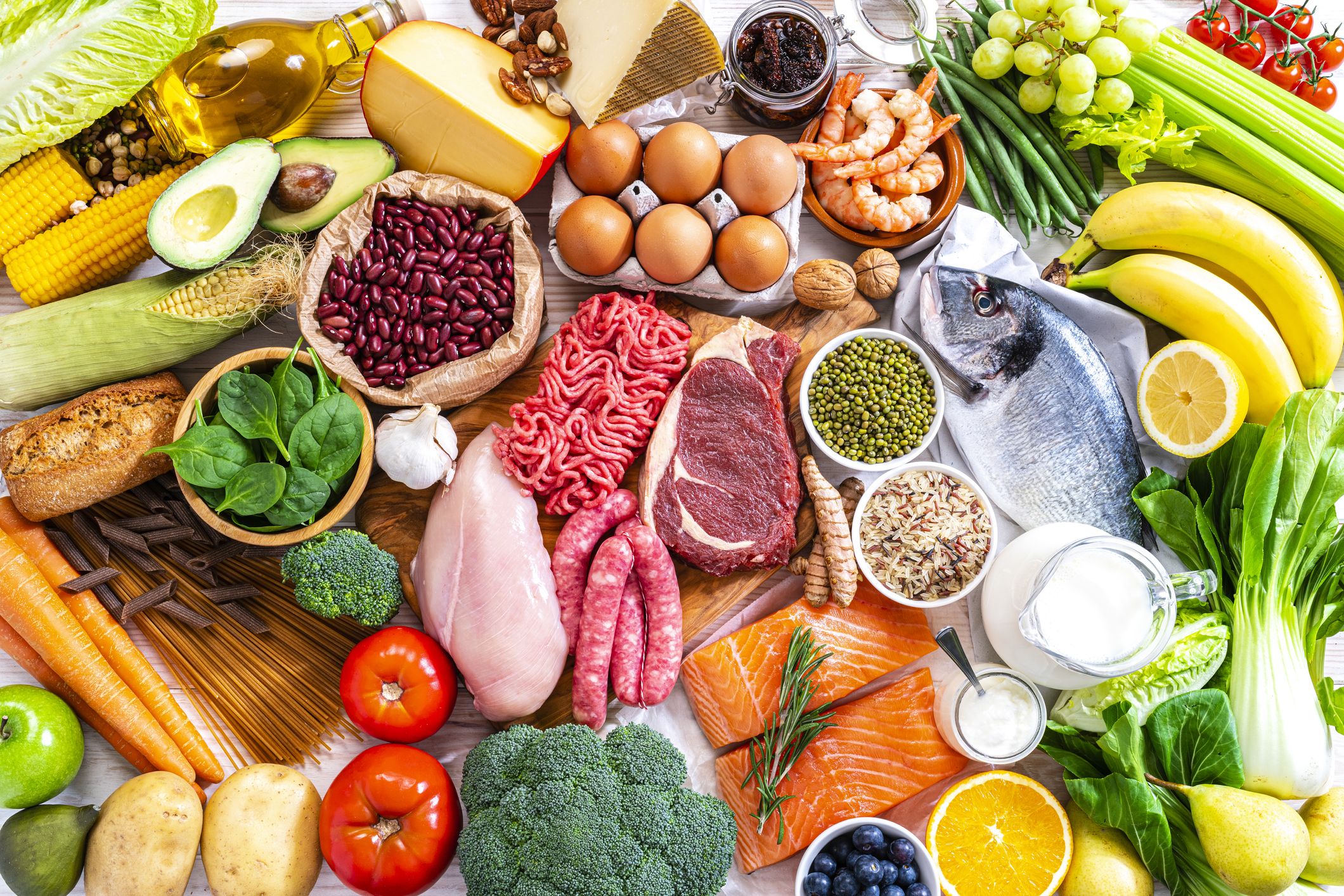Kidneys
Foods That Are Good For The Kidney
Low-sodium and low-potassium foods

Maintaining a diet beneficial for kidney health is critical, particularly for individuals with kidney issues or for those wanting to foster perfect kidney wellness. A vital function of this dietary regimen is to reduce sodium and potassium intake, which significantly impacts kidney health management, and can help ward off additional kidney damage.
Incorporating low-sodium dietary options is crucial in maintaining a kidney-friendly diet, assisting in blood pressure management, and reducing fluid build-up threatening the kidneys. Fresh or frozen fruits and vegetables, inherently low in sodium, are amongst suitable foods to consume. Similarly, whole grains, lean meats like chicken or fish, and nuts without added salt should be included to maintain a beneficial sodium balance.
Likewise, ensuring low-potassium foods are part of your diet is critical for individuals with kidney-related issues since the body may struggle to properly filter and eliminate excess potassium. Consuming large amounts of potassium can escalate the risk of heartbeat irregularities and other potential conditions. Low-potassium food selections such as apples, berries, cabbage, carrots, green beans, and white bread can help keep potassium within a safe range, fostering excellent kidney performance.
Please bear in mind that everyone’s dietary requirements differ. It necessarily varies depending on a person’s specific medical conditions and kidney function. It’s therefore encouraged that individuals seek advice from their healthcare provider or dietitian who can tailor low-sodium and low-potassium options to individual dietary necessities.
By consciously integrating these low-sodium and low-potassium foods into their kidney-friendly dietary plan, individuals can be proactive in sustaining kidney health. These diet choices can provide overall health benefits and help control symptoms and possible repercussions linked with kidney issues. Coupled with other kidney-friendly diet aspects, such as sourcing premium protein and nutrient-packed fruits and vegetables, low-sodium and low-potassium foods can assist in adopting an all-round approach to kidney health.
High-quality protein sources for a kidney-friendly diet

Adopting a kidney-friendly diet requires a selection of high-quality protein that offers essential nutrients without causing undue stress to the kidneys. Those dealing with kidney issues should choose proteins that are low in both phosphorus and sodium for their meals.
Lean meats such as skinless poultry, chicken or turkey can serve as an excellent source of protein while keeping kidney health a priority. These types of meat not only provide ample protein, but they also contain less phosphorus than red meats making it optimum for a kidney-friendly diet. To protect your kidneys, it’s best to prepare these foods without adding sodium-rich seasoning or salt.
Fish, rich in Omega-3 fatty acids and high-quality protein, is another dependable alternative. Varieties of fish like tuna, salmon, and trout are low in phosphorus and have added cardiovascular benefits. The method of cooking also matters; grilling or baking fish with little to no salt retains the benefits to your kidneys.
Versatile and kidney-friendly, eggs are another appropriate protein source. They are rich in high-quality protein and low in phosphorus. However, it remains important to avoid egg yolks, as they contain higher phosphorus. Substituting with egg whites or using egg substitutes can offer a healthier yet tasty choice loaded with proteins.
Additionally, plant-based proteins can be a valuable contribution to a kidney-friendly diet. Legumes such as beans, lentils, and chickpeas are fiber-rich and protein-dense, boosting overall kidney wellness. Soy-based foods like tofu and tempeh serve as quality protein sources, side-stepping the extra phosphorus and sodium inherent in animal proteins.
The wide selection of proteins extends to dairy too. However, those with kidney issues have to choose carefully. Lower or no fat dairy choices such as yogurt, milk, and cottage cheese can form part of a kidney-supportive diet. These foods offer protein without any unnecessary phosphorus and sodium. Being aware of food labeling to select products low in these minerals is crucial.
To wrap up, a diet beneficial to kidney health entails high-quality proteins low in sodium and phosphorus. Lean meats, fish, eggs, plant-based proteins and low-fat dairy products are all prime selections. By making informed dietary choices, individuals can protect their kidneys while meeting essential nutrient requirements.
Nutrient-rich fruits and vegetables for kidney health

The health and wellness of your kidneys hinge upon the regular consumption of nutrient-dense fruits and vegetables. Not only are these foods laden with essential vitamins and minerals, but their low sodium and potassium contents make them excellent dietary choices for those with kidney concerns. Adding a variety to your daily meals will offer many health advantages while sustaining optimal kidney functionality.
The primary consideration for those dealing with kidney issues is the careful management of their sodium consumption. Thankfully, numerous fruits and vegetables, low in sodium, are readily available. Among them, freshly harvested berries – including strawberries, blueberries, and raspberries – are not only delectable but packed with antioxidants for kidney protection, making them an excellent option for a kidney-friendly diet.
Another category of kidney-friendly vegetables includes leafy greens like spinach, kale, and lettuce. These are characterized by their low sodium levels and are abundant in significant nutrients – including vitamin C, vitamin A, and folate. Furthermore, they provide an ample amount of dietary fiber which helps to regulate digestion and prevent common kidney-related issues, such as constipation.
Concerning potassium, it’s important for those with kidney issues to monitor their intake since high amounts can prove detrimental. Nonetheless, there’s a broad spectrum of fruits and vegetables with low potassium levels suitable for a kidney-friendly diet. Among them, apples, grapes, strawberries, peaches, carrots, green beans, and cucumbers not only supply indispensable nutrients but also offer a tasty and refreshing twist to a renal diet.
Vitamin C is another critical nutrient for kidney health, abundantly found in citrus fruits like oranges, lemons, and grapefruits. It’s known for kidney-protective properties, including strengthening the immune system, reducing inflammation, and improving overall kidney health.
The integration of a broad range of nutrient-rich fruits and vegetables into your everyday diet is vital for kidney health. Aside from being low in sodium and potassium, they’re rich in essential vitamins, minerals, dietary fiber, and antioxidants. It’s essential, however, to remember that dietary needs vary by the individual. Thus, consultation with a healthcare provider or a registered dietitian is strongly suggested to determine the suitable portion sizes and quantities of fruits and vegetables for your specific kidney health requirements.
